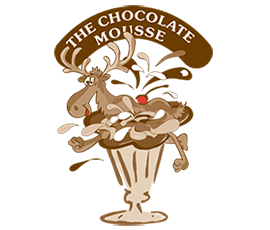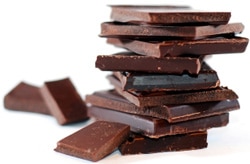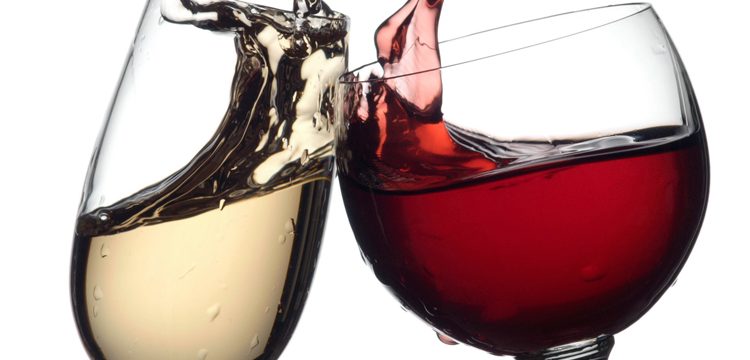
Dark chocolate is loaded with nutrients that can positively affect your health.
Made from the seed of the cocoa tree, it is one of the best sources of antioxidants on the planet.
Studies show that dark chocolate can improve health and lower the risk of heart disease.

1. Dark Chocolate is Very Nutritious
If you buy quality dark chocolate with a high cocoa content, then it is actually quite nutritious.
It contains a decent amount of soluble fiber and is loaded with minerals.
A 100 gram bar of dark chocolate with 70-85% cocoa contains (1):
- 11 grams of fiber.
- 67% of the RDA for Iron.
- 58% of the RDA for Magnesium.
- 89% of the RDA for Copper.
- 98% of the RDA for Manganese.
- It also has plenty of potassium, phosphorus, zinc and selenium.
Of course, 100 grams (3.5 ounces) is a fairly large amount and not something you should be consuming daily. All these nutrients also come with 600 calories and moderate amounts of sugar.
For this reason, dark chocolate is best consumed in moderation.
The fatty acid profile of cocoa and dark chocolate is excellent. The fats are mostly saturated and monounsaturated, with small amounts of polyunsaturates.
It also contains stimulants like caffeine and theobromine, but is unlikely to keep you awake at night as the amount of caffeine is very small compared to coffee.
2. Dark Chocolate is a Powerful Source of Antioxidants
Have you ever heard of a measure called ORAC?
ORAC stands for Oxygen Radical Absorbance Capacity. It is a measure of the antioxidant activity of foods.
Basically, researchers pit a bunch of free radicals (bad) against a sample of food and see how well the antioxidants in the food can “disarm” them.
The biological relevance of this metric is questioned, because it’s done in a test tube and may not have the same effect in the body.
However, I think it is worth mentioning that raw, unprocessed cocoa beans are among the highest scoring foods that have been tested.
Dark chocolate is loaded with organic compounds that are biologically active and function as antioxidants. These include polyphenols, flavanols, catechins, among others.
One study showed that cocoa and dark chocolate contained more antioxidant activity, polyphenols and flavanols than other fruits they tested, which included blueberries and Acai berries.
3. Dark Chocolate May Improve Blood Flow and Lower Blood Pressure
The flavanols in dark chocolate can stimulate the endothelium, the lining of arteries, to produce Nitric Oxide (NO), which is a gas.
One of the functions of NO is to send signals to the arteries to relax, which lowers resistance to blood flow and therefore reduces blood pressure.
There are many controlled trials showing that cocoa and dark chocolate can improve blood flow and lower blood pressure, but the effects are usually mild.
However, there is also one study in people with elevated blood pressure that showed no effect, so take all this with a grain of salt
4. Dark Chocolate Raises HDL and Protects LDL Against Oxidation
Consuming dark chocolate can improve several important risk factors for heart disease.
In a controlled trial, cocoa powder was found to significantly decrease oxidized LDL cholesterol in men.
It also increased HDL and lowered total LDL in men with elevated cholesterol.
Oxidized LDL means that the LDL (“bad” cholesterol) has reacted with free radicals.
This makes the LDL particle itself reactive and capable of damaging other tissues… such as the lining of the arteries in your heart.
It makes perfect sense that cocoa lowers oxidized LDL. It contains an abundance of powerful antioxidants that do make it into the bloodstream and protect lipoproteins against oxidative damage.
Dark chocolate can also reduce insulin resistance, which is another common risk factor for many diseases like heart disease and diabetes.
5. Dark Chocolate May Lower The Risk of Cardiovascular Disease
The compounds in dark chocolate appear to be highly protective against the oxidation of LDL.
In the long term, this should cause much less cholesterol to lodge in the arteries and we should see a lower risk of heart disease over the long term.
It turns out that we have several long-term observational studies that show a fairly drastic improvement.
In a study of 470 elderly men, cocoa was found to reduce the risk of cardiovascular death by a whopping 50% over a 15 year period.
Another study revealed that eating chocolate 2 or more times per week lowered the risk of having calcified plaque in the arteries by 32%. Eating chocolate less frequently had no effect.
Yet another study showed that chocolate 5+ times per week lowered the risk of cardiovascular disease by 57% .
Of course, these 3 studies are so-called observational studies that can not prove that it was the chocolate that caused the reduction in risk.
However, given that we have a biological mechanism (lower blood pressure and oxidized LDL) then I find it plausible that regular consumption of dark chocolate can in fact reduce the risk of heart disease.





